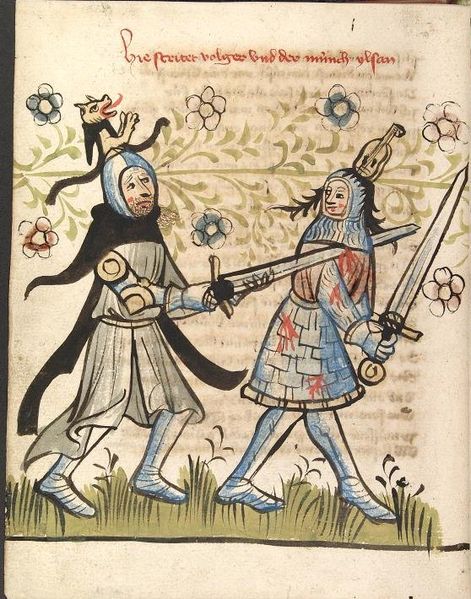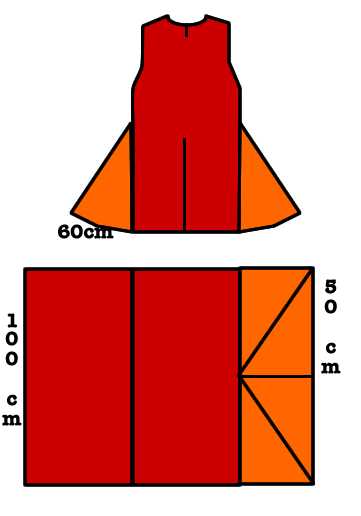I'll use the surcoat as an example, as the bradine would likely be similar in make to it. As far as I am aware, a surcoat has open sides. There may be and likely are exceptions to that but I am unaware of specific examples. Which of the two drawings below would be how it is sewn?
Behold my artistic wonder!
M.
Artistic genius in progress! [ Download ]

